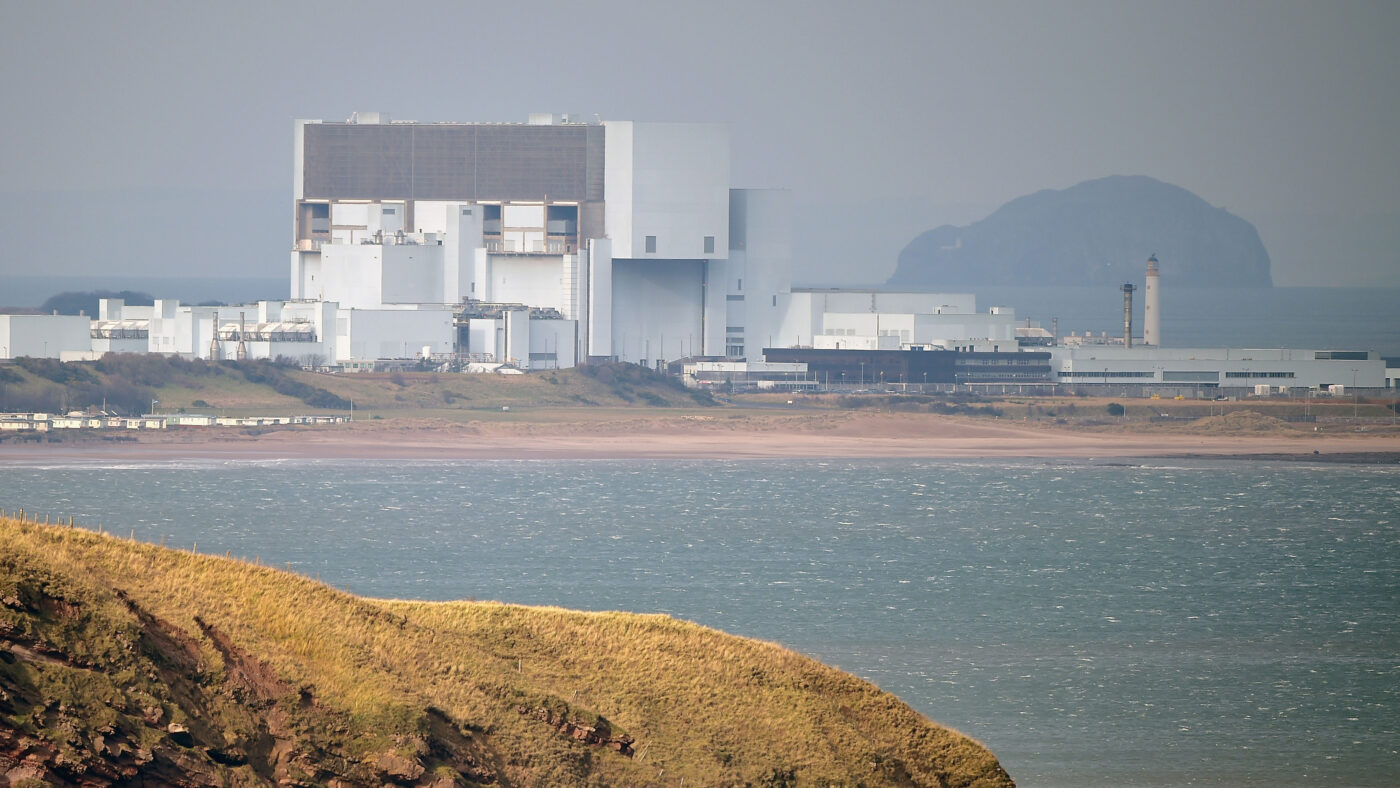Thirty-three miles east of Edinburgh, just off the A1 trunk road, sits the Torness power station. Completed in 1988, for 35 years it’s been generating clean electricity capable of powering 2 million UK homes, providing 730 direct jobs in the process. In 2028, however, it will stop generating and begin the long decommissioning process.
As things stand, Torness will be the last operational nuclear power station in Scotland. There’s one reason for this: the Scottish National Party’s long-standing ideological opposition to nuclear power.
When the UK Government published its Energy Security Strategy last year, which outlined plans to accelerate building up to eight new nuclear power stations in England and Wales, the Scottish Government were quick to say they would use their planning veto to block any new nuclear projects in Scotland.
Scotland’s Energy Secretary at the time, Michael Matheson, argued that the focus should instead be on accelerating the decarbonisation of the energy network and ramping up investment in energy efficiency.
Yet nuclear actually provides a reliable base-load of power that can underpin and complement a majority renewable grid. Unlike renewables, nuclear provides energy even when the sun does not shine and the wind isn’t blowing.
Despite the rhetoric of the SNP, 30% of electricity generation in 2021 in Scotland came from nuclear, the highest share of all four UK nations. In fact, last year, Torness itself generated enough clean electricity to meet the needs of every single home in Scotland for nine months. This avoided 2.5m tonnes of carbon emissions, the equivalent of taking 1.2m cars off UK roads for a year. Nuclear remains a crucial tool if we want to decarbonise our country’s energy network.
Contrary to Scottish Government policy, people in Scotland are beginning to agree with this sentiment. Britain Remade, the organisation I work for, this week polled Scots on their views on nuclear. A majority (54%) think that nuclear power should be included in Scotland’s energy mix in order to hit the country’s 2045 net zero target.
Most strikingly, the SNP are at odds with a plurality of their own voters, with 44% of those who voted for them in 2019 also agreeing on the importance of nuclear, while 39% oppose.
In many ways this is unsurprising. An overwhelming majority of Scots we polled (84%) were concerned about Britain’s reliance on importing energy from other countries. The aftermath of Putin’s illegal invasion of Ukraine has caused global gas prices to spike. Household electricity bills have more than doubled 35% of households in Scotland are now in fuel poverty. It’s clear that many see getting new nuclear built as a solution to Scotland’s energy security needs.
New Small Modular Reactor (SMR) technology could play a major role in providing Scotland with safer, reliable, clean energy, As SMRs are a small fraction of the size of a full-scale nuclear plant, they can be sited at a wider range of locations. This means many former coal or industrial sites in Scotland could be repurposed, with the technology securing a long-term future for sites such as the Grangemouth Refinery, where Rolls-Royce SMR have explored a project, protecting jobs as Scotland decarbonises its economy. But we can only proceed with these projects in Scotland if the Scottish Government’s ban on new nuclear power is dropped.
Sky-high energy bills are not an inevitability, but the direct result of a political choice not to build. The Scottish Government is at odds with the people it serves in its effective ban on nuclear. Removing this ban is necessary if we want to unlock reliable, low-carbon, baseload power that can make our country energy secure.
Click here to subscribe to our daily briefing – the best pieces from CapX and across the web.
CapX depends on the generosity of its readers. If you value what we do, please consider making a donation.


